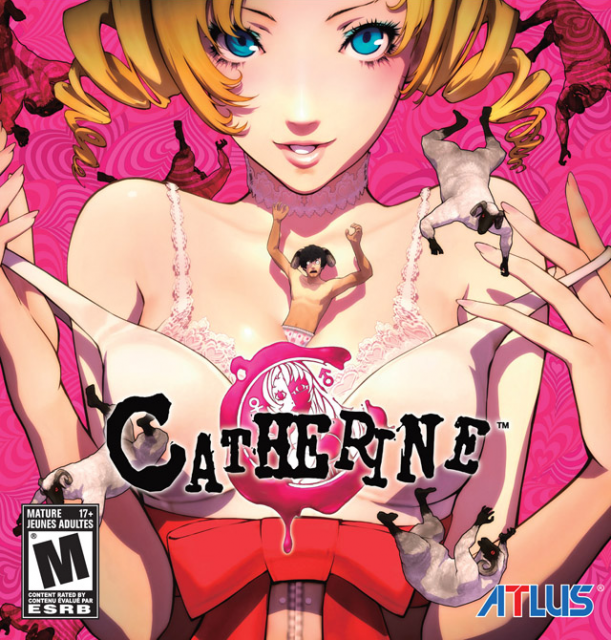Thoughts on Catherine and Player Character Agency
By Darth_Navster 11 Comments

Vincent Brooks is a cowardly, deceitful, selfish manchild. This was the only conclusion I could come to as I completed Catherine, the 2011 Atlus published title. During the course of the game, Vincent cheats on his longtime girlfriend, Katherine, lies about it to her, and drinks like a fish in order to avoid his problems. He refuses to take responsibility for his actions or acknowledge the needs of those around him. However, for all of Vincent’s failings, he clings strongly to his agency, and in the process demonstrates the narrative possibilities of a character whose actions directly conflict with the player’s intentions.
What I found most fascinating about Vincent is how atypical he is as a gaming protagonist. He possesses few admirable qualities and the entire premise of the game rests on his poor judgement. One evening, he’s approached by a comely young woman, named Catherine, who flirts aggressively with him. Cut to a nightmare sequence that seems to be taking cues from his current relationship woes, and in the morning he wakes up to realize that he cheated on his girlfriend. Rather than own up to his mistake, Vincent attempts to hide the situation from both women, and what results is a very complicated and draining week for our idiotic protagonist. As the days march on, we begin to get a clearer picture of what’s happening. There appears to be a plague of bad dreams affecting many in Vincent’s town, and young men are being found dead in their beds from unknown causes. Vincent himself has settled into a routine of emotionally and physically avoiding Katherine, drinking away his evenings, experiencing progressively more hellish nightmares, and finally waking up to realize he’s spent yet another night with Catherine.
While a linear narrative and player character agency aren’t necessarily new things in games, rarely do I so vehemently disagree with their decisions of said characters. Normally, my objectives and those of the protagonist are one and the same, or at least somewhat aligned. But with Vincent, I find myself struggling against his immaturity to an extreme degree. Part of this stems from the fact that Catherine’s central conflict is a lot more relatable than something like saving the planet from the Locust horde, but another part stems from the game teasing me with ways to change the story. The game gives me some leeway to affect things, including conversing with patrons at the local bar, responding to relationship questions, and texting (or not texting) Vincent’s lovers, and many of these actions feed into a meter that is purposefully left unexplained. But despite these opportunities to alter Vincent’s behavior at the margins, the big decisions remain painfully his own. One can forgive him waking up each morning with Catherine next to him, owing to his supernaturally induced blackouts, but his continued lack of transparency with Katherine vexed me to no end.
This idea of experiencing an unlikeable character’s journey in a video game is such a compelling concept to me. Unlike other media, there’s very little distance between us and the protagonist in a game, and the line between our desires and those of the character often blur. To create the character in such a way as to conflict with the player’s wants is risky, but as Catherine proves, it can be incredibly rewarding. I remained enraptured by the story from beginning to end, and a big reason why is because I found Vincent’s poor decisions and their effect on those around him to be endlessly fascinating.
Catherine is such an odd game. Made by the Persona developers, it reflects their famed series in terms of brash presentation and fully realized characters. That it was able to come out as a boxed game despite its subject matter and narrow scope speaks to a much different games industry in 2011 than we have now. A game like Catherine released in 2016 would almost assuredly be an indie title made on a shoestring budget, and that would be a shame. The story and themes would not have made nearly the same impression on me without its gorgeous art style and emotive characters. Who knows when or if we’ll see such weird one-off games make a comeback, but for now I’m glad I got to experience Vincent’s frustrating journey.